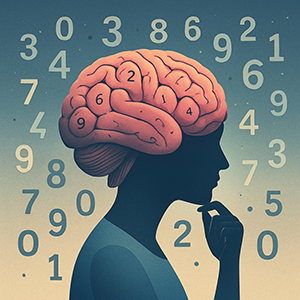Did you know that playing simple brain games before bed can actually improve your sleep and boost your memory? Studies show that light mental stimulation like puzzles, word games, or logic challenges can help the mind unwind without overstimulation. I’ve tried it myself, and it’s surprisingly calming! What are the best brain games before sleep? How do they affect your mental health and which types of games you should choose for better focus and deeper rest. Let’s dive into the science, benefits, and best bedtime options to train your brain while winding down.
Why Play Brain Games Before Sleep?
Brain games before sleep calm the mind. They give your thoughts a clear task and reduce stress. Playing a puzzle or word game keeps your focus steady and helps you unwind.
A short game trains your attention without excitement. It can replace scrolling or late-night TV. The structure helps the brain relax into routine.
Choose puzzles that end quickly. Stop after 10 to 15 minutes. Avoid competition or time limits. Keep the goal simple: light focus before rest.
Brain games can become part of a healthy bedtime habit. They signal that the day is ending. The right activity helps you sleep faster and think more clearly the next day.
The Science Behind Brain Games and Sleep Quality
Mild mental activity before sleep helps the brain slow down. Research shows that simple puzzles can improve sleep quality. They reduce racing thoughts by shifting attention to a single task.
Brain activity during a calm puzzle moves from alert to relaxed. This helps you fall asleep faster. It also supports memory and learning.
Memory consolidation happens during deep sleep. Doing light cognitive work before bed can improve recall and focus. The brain organizes what it practiced during the game.
Avoid games that raise your heart rate or increase tension. Stay with quiet, slow, and structured challenges. The goal is steady thinking, not excitement.
Best Types of Brain Games to Play Before Bed
The best brain games before bed are calm and predictable. Choose ones that require light thinking.
Good options include:
- Word puzzles like crosswords, word searches, or anagrams.
- Logic puzzles such as Sudoku or grid challenges.
- Memory games that match pairs or repeat sequences.
- Creative games that ask simple questions or riddles.
Keep sessions short. Avoid bright screens or loud sounds. Stop playing if you start to feel alert instead of tired.
Test different puzzle types to see which helps you relax. The best one is the one that helps your brain slow down.

Screen-Free Brain Games for a Calming Night Routine
Screen-free puzzles are better for sleep. They reduce blue light and help your eyes rest.
Use puzzle books, printable pages, or notepads. Try Sudoku, mazes, or word searches on paper. Writing by hand builds focus and gives a quiet routine.
Set up a calm environment. Use a warm light and sit in a quiet space. Limit yourself to one or two pages.
Analog puzzles also remove digital distractions. They create a clear boundary between day and night. This helps your body recognize it’s time to rest.
Digital Apps for Brain Training Before Sleep
If you use apps, choose ones designed for calm play. Look for night mode and soft colors.
Good options include Lumosity, Peak, and Elevate. These offer short, structured games that focus on memory and attention.
Set your screen brightness low. Use a timer to limit your play to 15 or 20 minutes. Stop before you feel alert.
Turn off notifications or switch to airplane mode. This prevents interruptions and helps you finish with a clear mind.
How to Build a Brain Game Bedtime Routine
A bedtime routine works when it’s consistent. Pick a simple puzzle and do it at the same time every night.
Start with small steps. Choose one puzzle type and play for 10 minutes. Use the same setting and lighting each time.
Avoid adding too many tasks. Keep the routine short and predictable. The goal is to prepare your mind for rest.
Track your sleep for a week. Notice if you fall asleep faster or wake up less often. Adjust your puzzle type or timing based on results.
Common Mistakes to Avoid
Some habits make brain games less effective. Avoid playing long or competitive games. They keep your brain active instead of calm.
Don’t play right before turning off the light. Leave a short gap to let your body relax.
Avoid bright screens and fast music. Choose quiet environments and simple designs.
Don’t treat puzzles as a chore or performance test. They are tools to help you relax. Stay consistent, keep it simple, and focus on rest.
Smarter Mind, Better Sleep
Playing brain games before sleep is a simple, science-backed way to wind down while keeping your mind active. The right kind of mental exercise can calm your thoughts, ease anxiety, and even help your memory long-term.
Whether you choose a crossword on paper, a logic puzzle in a book, or a relaxing app, make it part of your nightly rhythm. You’ll rest easier — and your brain will thank you in the morning.

